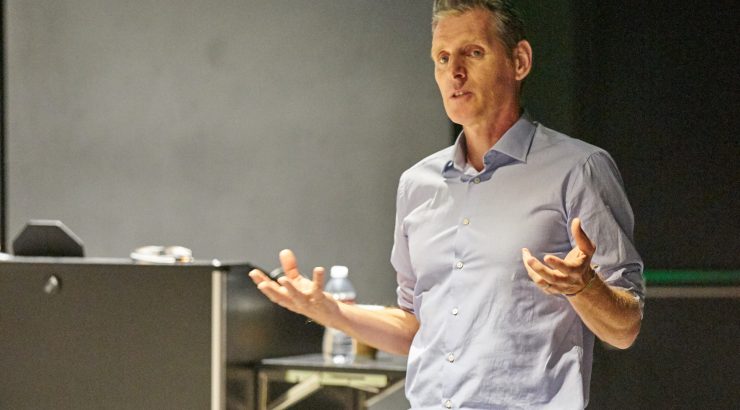
DIY Filmmaking Essentials from the Experts Peter Baxter, Slamdance Film Festival
May 23, 2018
Peter Baxter cares about filmmakers, and with a do it yourself spirit he and his colleagues at Slamdance developed a workshop for students interested in careers as independent filmmakers. With 25 years of experience programming film festivals, Baxter, Slamdance’s co-founder, and president, offered his wisdom to the students of Dodge College this spring.
Consider these tips when preparing for your thesis film or as you work on your next indie project:
- Find a community. “Slamdance is an artist-led organization, ‘by filmmakers, for filmmakers,’ we like to say.” The support from peers and collaborators with a shared vision of success is essential to each project.
- “If you want to go out and do something, go out and do it. Don’t ask for permission.” As an independent filmmaker, you don’t need a studio’s say-so or a huge budget to get started. Make your film, your way.
- “Believe in yourself, don’t doubt your creativity. The successful storytellers we know have been able to empower themselves and those around them.”
- “Embrace your failures and learn from them.” It is not the end of the world if your film isn’t a masterpiece, as long as you are able to move forward with an awareness of how to improve.
- “As students, you have the luxury of time. For the best possible production, use that time to be prepared for all aspects of the filmmaking process.”
- “Think about the promotion of the film, even before you begin shooting.” Once a film is completed, the hard work continues as promotion begins. Be prepared with a budget and enough time allocated to promotion.
- “Take care of your team.” Do not underestimate the importance of food and water on your production.
- “Protect your creation. Copyright both your written work and your moving image work.”
- “Have a plan of first, second, and third choices of film festivals to submit to, before making your film. Target the festivals you believe your film will find an audience.” *Pro tip – before you submit, give the festival a call for more info on their program and if your film would be a good fit.
- “Always be open to the possibilities of working in any form of moving image. Feature length, television, web series, or streaming. Do not be closed off to any of these mediums.”
- “Always have your next project, not only in mind but organized. Be thinking practically how to continue working with your support team.”
Thank you, Peter!

